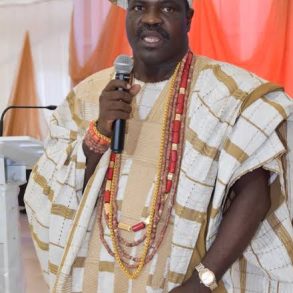By Aare Kurunmi II
There is a lot of controversy currently on what Yorùbá should be and what the central ideology of The Yorùbá should be. A lot of people from different works of life especially Abrahamic religious clerics have narrated Yorùbá history and cultural value system from their narrow prism of Islamic or Judeo-Christian theological background.
I will try to break it down as simple as possible for all, so that we can understand what Yorùbá is. To different people within the Yorùbá society, the term Yorùbá means different things to them. The Yorùbá ethnic nationality is one of the most diverse groups of people in the world. We have black Yorùbá, brown Yorùbá and white Yorùbá based on skin colour due to many years of genetic admixture due to intermarriage mostly in Brazil, Trinidad and Tobago and Cuba.
Yorùbá are also spread across different countries in West Africa meaning a Yorùbá man or woman, can be Ghanian, Sierra Leonian, Gambian, Ivorian, Nigerian, Togolese or Beninoire.
On the religious aspects, Yorùbá people can be christians, Muslims, Òrìṣà adherents, Atheists, Hindus or even Agnostics. That is how diverse the Yorùbá people have become. What is even alarming is that the Yorùbá people living in Brazil, Cuba, Haiti, USA and Trinidad and Tobago are almost the same population as the Yorùbá of Nigeria, Togo, Benin republic, Ghana, Sierra Leone and Ivory coast. This is was one of the reasons why The Yorùbá of the American continent sponsored a docu-movie titled “Bigger than Africa” which was a big success on Netflix, which was to educate Yorùbá of West Africa most especially the ones in Nigeria who think they are the only Yorùbá in the world due to ignorance and colonial indoctrination that they are not alone.
Therefore, Yorùbá can be in 7 identities and none of the identity is inferior to each other. They are;
- Yorùbá can be an Ethnic Identity
- Yorùbá can be a National identity (Like during the Òyó empire)
- Yorùbá can be a Spiritual Identity (E.g Yorùbá of Brazil, Cuba and Trinidad and Tobago). This is the argument about Ìsèse.
- Yorùbá can be a Language Identity (This is for the assimilated ethnicities like the Fulani, Hausa, Ìbàrìbá, Nupe, Fon etc in Benin, Togo and Nigeria)
- Yorùbá is a Political Identity (To unite different Yorùbá and Yoruboid subgroups for a common economic and political purpose in Nigeria, in West Africa and the world).
- Yorùbá is a cultural identity. How? E.g Music. It is common knowledge that many non Yorubas within and outside Africa now use Yoruba language to make music which is a form of cultural expression of the richness and uniqueness of the Yoruba people.
- Yorùbá is a genetic identity. Yorùbá people have specific markers in their genes that makes them unique and different from other ethnic nationalities in the world. Many descendants of enslaved Afro-carribeans and Afro-Americans are using the latest molecular biology tools to determine their ethnic nationalities in Africa and many of them have traced their roots to the Yorùbá people. Are we going to say they are not Yorùbá, when science says they are Yorùbá?
These are the 7 forms of Yorùbá Identity. To be Yorùbá, you have to possess some of the attributes listed above. Yorùbá became so diverse due to internal migration from other ethnicities several centuries ago, Transatlantic slave trade, colonialism, war and natural ethnogenesis.
Show love to all Yorùbá, no matter the differences in terms of skin colour or religion or country identity. No Yorùbá is inferior.
One love.






